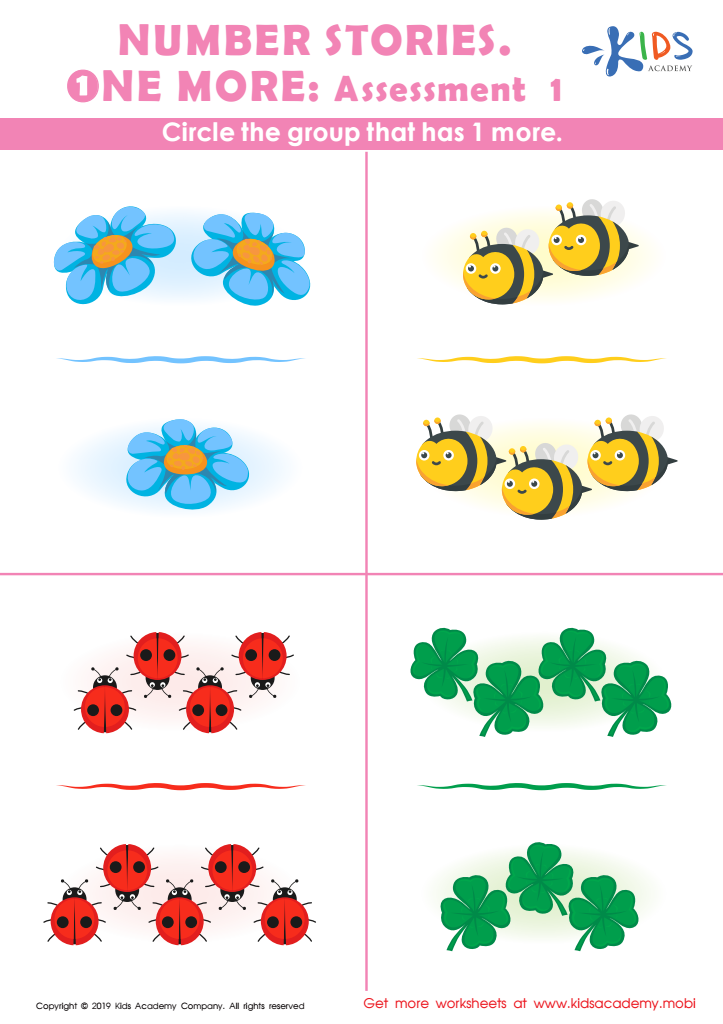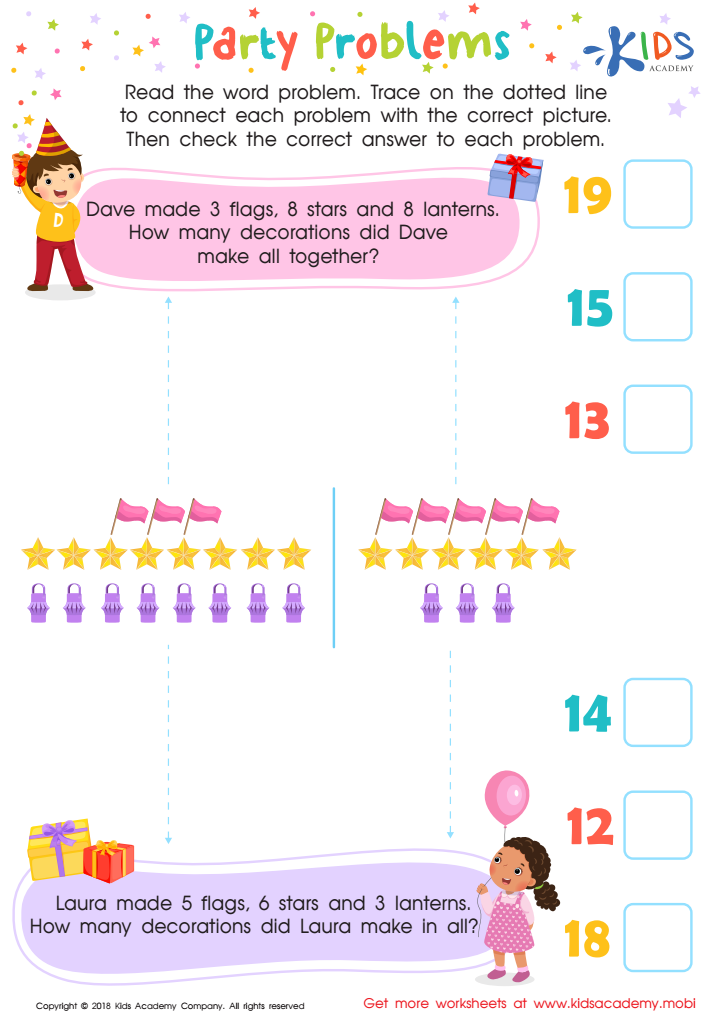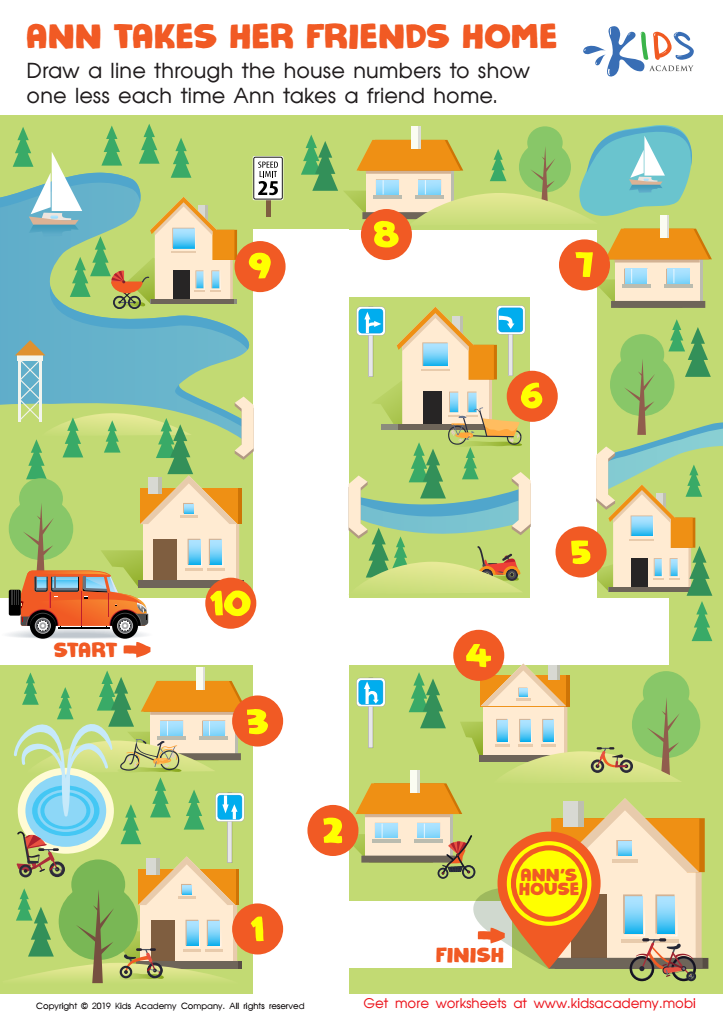Problem Solving Numbers Worksheets for Ages 4-5
3 filtered results
-
From - To
Discover our engaging Problem Solving Numbers Worksheets designed specifically for children aged 4-5! These worksheets provide a fun and interactive way for young learners to develop essential math and problem-solving skills. With colorful illustrations and age-appropriate challenges, children will learn to recognize numbers, count, and solve basic problems while building confidence in their abilities. Ideal for both classroom use and at-home practice, our worksheets encourage critical thinking and reinforce core concepts in an enjoyable manner. Start your child's math journey today with our thoughtfully crafted resources that prepare them for future academic success! Perfect for early education settings!


Number Stories One More – Assessment 1 Worksheet


Party Problems Worksheet


Ann Takes her Friends Home Worksheet
Problem Solving Numbers for ages 4-5 are a crucial aspect of early childhood education, as they lay the foundation for mathematical thinking and cognitive development. At this age, children are inherently curious and eager to understand the world around them. Introducing problem-solving with numbers enhances their critical thinking skills, encouraging them to explore, create, and reason.
Parents and teachers should prioritize this learning because it develops early numeracy skills essential for future academic success. Through engaging activities such as sorting, counting, or simple addition and subtraction, children learn to recognize patterns and relationships among numbers. This not only cultivates mathematical thinking but also strengthens their ability to approach challenges with confidence.
Furthermore, fostering problem-solving skills at an early age builds patience and perseverance. It teaches children that making mistakes is part of the learning process and encourages a growth mindset. Ultimately, when parents and teachers engage children in problem-solving with numbers, they instill a lifelong love for learning and equip them with essential skills that extend beyond the classroom into everyday life. Emphasizing these foundational skills helps create resilient learners ready to tackle more complex problems in the future.
 Assign to My Students
Assign to My Students





.jpg)










